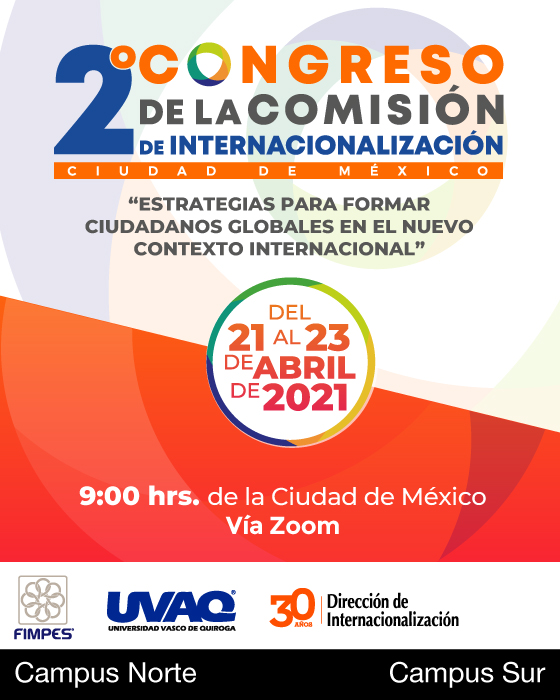
Dr. Jose Castilla Barajas, Director of Community Engagement, and Dr. Bernardo Rangel Sada, Vice President of Integral Formation of our University, share their most recent article with the Anahuac Community. In it, they address the relevance of community engagement of universities during this pandemic.
The current situation inspires us in many ways, and community engagement is among the most important ones. Just as wars or natural disasters, this pandemic is an opportunity for reflection and introspection, to ask ourselves what is happening and why do these things happen?
Challenging times over history are the perfect time for human beings to find their best version, demonstrating a great sense of solidarity and resilience, among many others. It was in times of war that the Internet -a powerful tool connecting us- was invented. A war, which is an occasion for fighting against each other and for losing so many and valuable lives, was also an occasion for human ingenuity. In that same way, the current health crisis that is isolating us in our homes brought the need for ingenuity to stay together and to find a way to help others.
There have been great models who, with determination in moments of need, changed their own reality and that of their entire surroundings. St. Roch and his fight against the plague, thus becoming a saint for times of pandemic. The heroic defense of Coruña by Maria Pita. Marie Curie and her study of reactivity and its new chemical element. Coming from a wealthy family, St. Philip Neri transformed Florence by keeping company, educating and sharing the much needed joy.
When the going gets tough, the tough get going. But, how to do it in times of confinement? How to maintain the essence of the community engagement of our university? What is the community engagement of universities in times of COVID-19?
Our mission is to lead participation of the Anahuac University Community into social projects, setting off and coordinating the actions that are needed, while offering training platforms to encourage genuine social awareness and the development of attitudes and skills such as charity, empathy, service and engagement, to contribute to a favorable and positive change in their surroundings.
From our perspective, the current pandemic has brought together two simultaneous realities. On one hand, vulnerable groups, the sick, the elderly, people with an unfavorable medical history and chronic degenerative diseases. On the other, hundreds of thousands of people who are forced to stay at home in solidarity and willing to help. It is in this context where the community engagement of our university must be creative and innovative in order to happen.
In these times, the digital world, the Internet, and the social media have become the perfect means to bring both realities together.
Anahuac students must find in this pandemic a way toward new solutions that make a difference. They must be constantly searching for opportunity areas for the dissemination and implementation of community engagement in the academic field, through direct and indirect social action.
If we were to describe the current situation, "changing” would be the right adjective, in regards to the adaptation of volunteers to the different scenarios, which is essential.
Volunteering tips for times of COVID-19:
- Analyze your strengths
- Identify the main groups in need
- Reinvent and look for new paths
- Gauge risks of each project and takes preventive measures
- Join to other projects and initiatives
- Always send a message of hope and joint responsibility
- Training and the academic-formative part are essential in any project
Volunteering in mental health, psychological remote assistance, crowdfunding campaigns, among others, are feasible options.
The situation restricts the movement of people. Not being able to go out or not having visits lead to emotional instability among the most vulnerable groups, such as people with disabilities and the elderly.
According to data from the National Population Council (Conapo), by 2030 in Mexico 29.3% (more than 25 million people) will be adults over 60 years of age. In this context, distance volunteering provides support for both parties. That is, it is helpful for both the person who provides help and who receives it.
In The Last Virtual Volunteering Guidebook, published by Jayne Cravens and Susan J. Ellis in 2014, it is argued that online or remote volunteers should be part of the overall strategy of an organization, a company or a university.
Today this need is evident. From a technology expert to a person with little practice. there is a broad variety of profiles among the people who join online volunteering, favoring the situation. Distance volunteering facilitates the academic trend of community engagement, as training is an essential part of each project.
Important tips for remote volunteering:
- Recruit volunteers more efficiently through the Internet and social media
- Manage epidemiological risk and protect confidentiality online
- Generate online communities of volunteers in different areas
- Offer training and guidance through digital tools
- There is a broad range of projects from micro-volunteering to long-term projects, including research and direct contact with users
In 2000, the United Nations (UN) launched the International Online Volunteering Program, with project categories such as art and culture, training and preparation, translation, awareness, among others. There are currently hundreds of initiatives around the world.
Also, Online Volunteering is an excellent gateway for those interested in community engagement. An opportunity that is now more relevant than ever when millions of people all over the world stay at home to stop the spread of the coronavirus.
COVID-19 allows us to establish social action as an essential element in the training of students at Anahuac University in Mexico City.
We can all be volunteers in the distance. We can donate money to provide food to those in need or those who got laid off. We can donate our time by listening our acquaintances, who are probably on their own in this confinement, and we can encourage empathic policies in our workplace.
There is no doubt that the new normal will lead us to extend the successful practices that we now find to be opportunities we did not take before. But, above all, it will remind us that we perhaps lived “so alone” despite being surrounded by so many people. This new normal is making us to take a moment to look at ourselves and our loved ones in a "different way.”
Once we meet again at a park, a school, a coffee shop or any other place we used to visit before this pandemic, we will be more human than before. We will be more supportive and more aware of what we have experienced. After going through these times of adversity together, we can now say that we count on each other, and we have learned, among many other things, this one lesson: isolation did not stop us from reaching out a helping hand at the distance.
Lastly, let us not forget that we have to start at home. We can turn our houses into homes, in places of warm welcome, respect and trust, selfless support, attentive and empathetic company.
We will continue listening, we will continue supporting, we will continue reinventing. We are ASUA and we are going for more!




